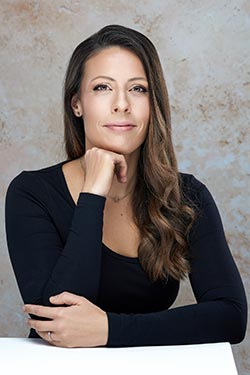Ing. Jaroslava Óbertová, Ph.D.
Nuclear and Particle Physicist, Faculty of Nuclear Sciences and Physical Engineering, CTU in Prague

Jaroslava Óbertová studied Experimental Nuclear and Particle Physics at the Faculty of Nuclear Sciences and Physical Engineering (FNSPE). She began her scientific career at the Nuclear Physics Institute of the Czech Academy of Sciences. In 2017, she received the Becquerel Prize for the best research work within a doctoral program, which enabled her to complete an internship at the Institute of Nuclear Physics in Orsay, France. Later, her doctoral research also earned her the CTU Rector’s Award. She spent her postdoctoral studies at the University of Barcelona. Since 2020, she has been working at the Department of Physics at FNSPE, and for the fourth year, she has been organizing the event "Become a Scientist for a Day."
What is your area of expertise at CTU, and what do you enjoy most about your work?
Currently, I study the interaction of particles with nonzero strangeness (containing a strange quark "s") with nucleons and atomic nuclei. Additionally, I investigate nuclear effects in the production of heavy quarkonia on nuclear targets in heavy-ion collisions at the LHC (CERN) and RHIC (BNL).
What I enjoy most about my work is the moment when I develop a theoretical model, perform calculations, and then see my results match experimental measurements. The fact that we can predict how the universe behaves at the most fundamental level is priceless.
What led you to science?
Science has fascinated me since childhood. From the moment I first understood what the universe was, I was captivated by it. When I watched movies featuring scientists, I always wanted to be like them—to be able to solve the most complex problems.
At school, I enjoyed math and physics, and I was good at them. In my second-to-last year of high school, I decided to study nuclear physics and applied to FNSPE at CTU in Prague—and from there, everything just fell into place. In a way, I am living my childhood dream of becoming a scientist.
How do you balance your personal and professional life?
I am the mother of a four-year-old daughter, and I won’t lie—it can be challenging. It used to be easier, but now I really try to find the right balance between family and work.
A career in science is quite time-flexible, and my faculty has always been supportive of balancing work and childcare. I am fortunate to have a great husband, and we equally share the responsibilities of parenting and household duties. I can attend conferences and workshops without any issues—we always find a way to make it work. It requires careful planning, and sometimes, we need the help of a babysitter since we don’t have grandparents nearby.
Would you recommend a scientific career to high school girls? If so, why?
I would definitely recommend a scientific career to high school girls who enjoy discovering how things work, seeking answers to complex questions, and persevering through challenges.
To pursue science, you have to love it—the best way to find out if it's right for you is by studying natural sciences or technical fields. Even if you choose not to stay in science, this education will give you a strong foundation for a successful career in many other areas.